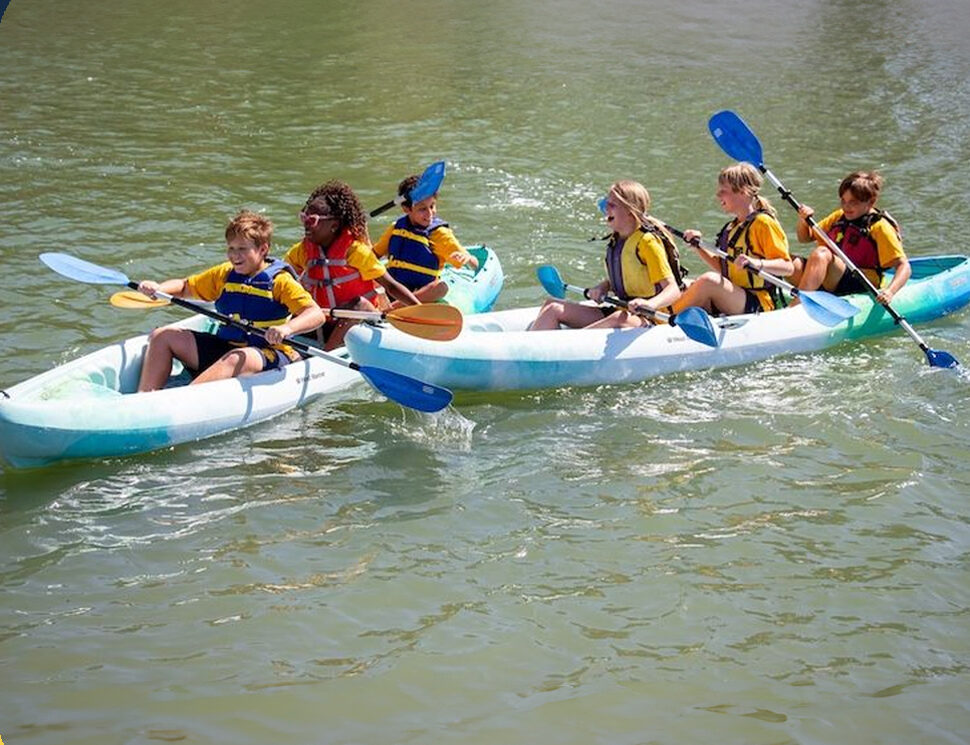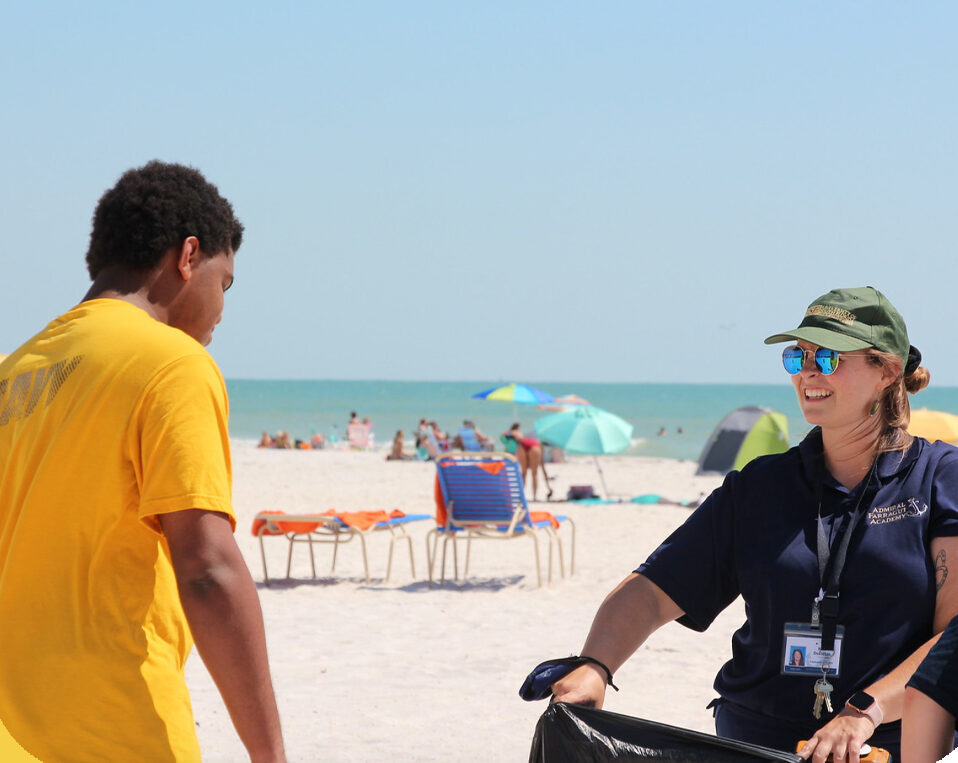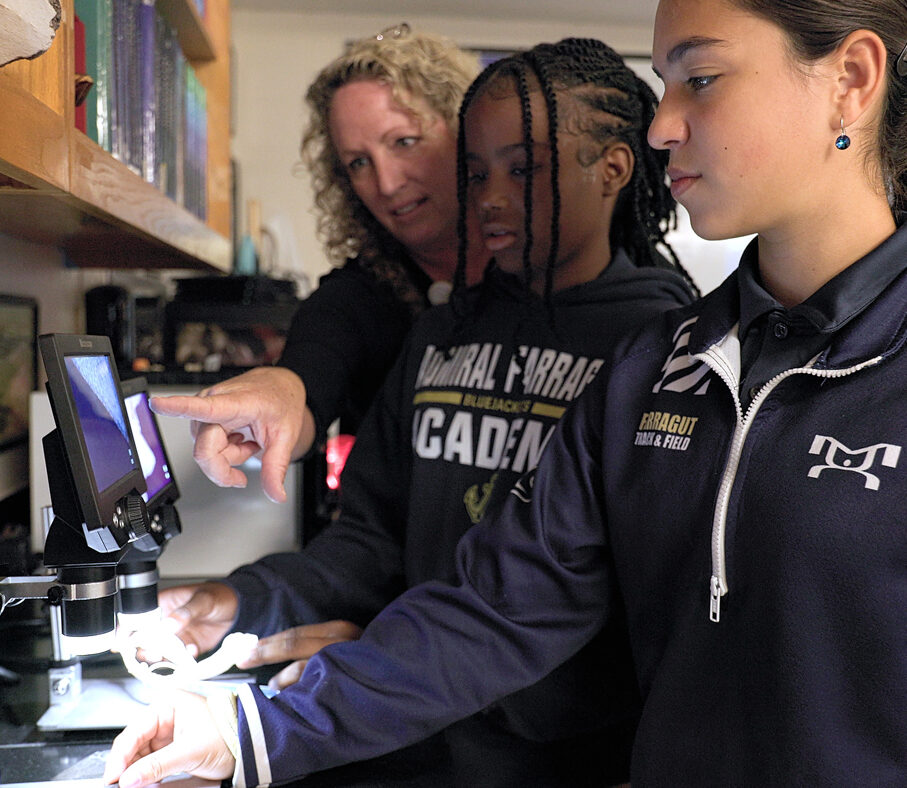
Marine Science At Upper School
In Upper School, hands-on discovery and learning opportunities abound, including the opportunity to meet local scientists as guest speakers and the ongoing research study at our waterfront conducted by the Fish and Wildlife Commission to mitigate Red Tide.
Cadets have access to state-of-the-art technology and equipment, including:
• LaMotte Water Testing Kits (funded by the Florida Association for Water Quality Control) to test water parameters such as dissolved oxygen, pH, nitrates, ammonia, turbidity, chlorine, and phosphate.
• YSI digital handheld test kits to collect water samples from the different sources around campus (creek, bay, basin, fish tanks) and examine them with cordless stereo microscopes for plankton or other small invertebrates.

Marine Science At Lower School
• Beginning in 5th grade, Lower School students attend class on the waterfront to explore marine life, seine and cast net, kayak, and more.
• Students in 6th and 7th grades study life science and marine science with a core science faculty member.
• Teachers engage student interest, provide hands-on learning experiences, and foster conceptual learning through various inquiry experiences.
• Field studies are an integral part of the program as our campus provides many options for scientific inquiry with the animals and waterfront experiences.

• Secchi disks to determine the turbidity of water.
• Hydrophones to listen to local dolphins or other marine organisms.
• Aquascopes to explore the bottom of the Bay and bottom grabber samplers or sieves.
• Monocular and LCD digital microscopes for plankton studies, used when students take live samples from our waterfront for viewing and identification.
• Dip nets, cast nets, and seine nets to sample marine species; Farragut maintains a FWC collection license which allows students to bring organisms from our waterfront and house them in our classroom tanks for further study.
• Future projects include adding an aquaculture system to our STEM garden and an osprey observation tower with a webcam at our waterfront.


